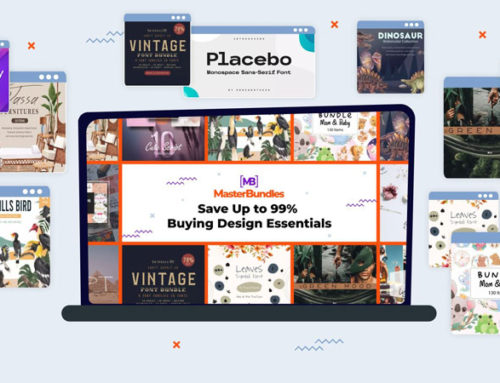The Internet can be seen as having superseded traditional media. Television, radio, newspapers and other print media have been decreasing in reach year over year, with print taking particularly heavy hits—who hasn’t heard of closures of their favorite magazines? Radio, TV and newspapers have also been moving to online platforms, with websites either augmenting or replacing the older forms altogether.
Online marketing is a response to these trends. Quite simply, online marketing follows much of the old guard of marketing, but on the more modern medium of the Internet. Factors such as building up awareness, constant communication and connection with your target audience, providing excellent service, and securing those important sales still play important roles. The ultimate goal is still to increase your popularity, driving visitors to your site, and selling your products.
However, the different culture of the Internet may seem daunting for those raised in the ways of traditional media. This introduces difficulties in a central tenet of marketing: knowing your audience. Luckily, we’ve got your back with this guide to the most useful online marketing techniques and how to use them to your advantage.
1. Blogging

The centerpiece of your online presence is still the blog. Despite the prevalence of social networks such as Facebook, Twitter and Pinterest, the longer form of blogging continues to serve its purpose as a way of humanizing your product, creating an online persona that is an expert on the subject and engaging at the same time.
While you may be the proprietor of a valuable, professional business, having an online identity that your potential customers can relate to is an efficient way to connect. People remember the corner stores they grew up with, where they knew the business owner who cultivated a relationship of patronage. Blogging is a way of continuing this tradition by online means, and it is a great way to present your brand to your customers.
It’s a longstanding tradition in marketing that customers buy the seller before they buy the seller’s products. By writing articles that inform your customers about your brand, you’ll be able to set up a medium for communication with your readers using a comments system.
Apart from presenting your business as one headed by a reputable expert, putting up a blog allows you to set a foundation for your other activities online. The personal nature of blogging provides a complement to your professional online business, and this balance is one you would do well to maintain.
2. Link Building

Link building is connected with blogging practices. As you build up your online persona via your blog, you’ll be exposed to other experts in your niche. These connections lead to valuable partnerships— you can mention these other practitioners in your blog posts in exchange for their mentioning you in their blogs.
You can take this relationship to the next level by writing “guest posts”—articles on other people’s blogs, presenting yourself as a different kind of expert. Make your content compelling enough and you’ll be able to attract new customers that you otherwise would not have been able to reach with the limits of your own site.
3. Email Marketing

If you run an online business, chances are you’ll already have a built-in directory of your customers. Leverage this contact information to directly reach your established audience, with targeted letters that are deeply personal, even more so than the blog. With email marketing, you have actual one-to-one correspondence with your customers, creating a feeling of tailored service.
You can even set up a convenient system where, for each purchase, your customers have the option to be automatically informed of new deals and promotions you’ll be holding. Newsletters and personalized recommendations are viable ways to engage your customers. Just don’t overdo it, or you’ll be marked as spam.
4. Social Media

Think of social media as an easy, free way to promote your already established online presence, namely your website and your blog. The more traditional social networks, like Facebook and Google+, serve as an extension of you as a persona, making connections with customers.
These sites’ respective fan pages also let customers show their support for you via “Likes” and “+1s”. You can hold promotional activities like providing incentives for people who like you on Facebook to attract more followers.
Twitter, on the other hand, is great to propagate quick information and news. You’ll also be able to forge more professional connections by retweeting other prominent people in your industry. Pinterest lets you be a bit more creative with visual content—use it as an avenue to showcase your photographs and videos.
5. Branding

Branding is one of the mainstays of traditional marketing that has made it to the online space. It is basically creating an identity and communicating this consistently to your audience through your marketing materials, as well as your online and offline portals. It is more of creating an image of your business that consumers would easily recognize and remember.
Branding is directly related with your reputation, and all of your public actions directly influence this factor. Think of ways to build relationships, develop your credibility, attract buyers, reinforce customer loyalty, and—most important of all—clearly impart your message and goals. If you are aware of these interacting elements, you can create a brand that people trust and are willing to buy into.
6. Great Content

This last factor isn’t limited to text or images. Rather, think of it as an overarching framework you should apply to every aspect of your online marketing strategy.
Whenever you produce any piece of content, think of how it can best inform and educate your customers. The goal is to stimulate the interest of your readers enough so that they’ll be curious about you and your products. Allow this ideology to pervade what you write, and soon enough, you’ll be able to pull customers to you, as opposed to the more blatant pushing of traditional advertising.
By following and using these six important ingredients in your online marketing strategy, you will be able to establish an Internet presence that is simultaneously accessible and authoritative. The best part is, the vast majority of online marketing techniques are free, or at least, less expensive than traditional media. This means that you will reach more people and save more money.
For those who have already dipped their feet into online marketing, how has it affected your business? Share your stories in the comments below!








What a great collection of Market Strategies! There are six ways including this blog, these ways will help in our website. Great Info Guys.
Very useful research.Since more and more customers interact with companies online, websites have become a source.One The main reason that websites were rapidly rejected was due to the design of the interface. In cases where the people did not like some aspect of the design the site was often not explored further than the homepage and was not considered suitable for revisiting. So i think a good interface design also necessary for marketing the website.
Awesome idea.very nice effective research that very help full for web development and i thank it is a total package of Market Strategies and included six main point,that’s nice.
Useful list thanks Vincent.
I would worry about guest posting as I feel it may be the next ‘big thing’ to be punished by Google, as it is being overused in my opinion
Baz
of course if you do mass guest posting it is a unusual activity for Google. you just need to balance the no-follow and do-follow links of your website.